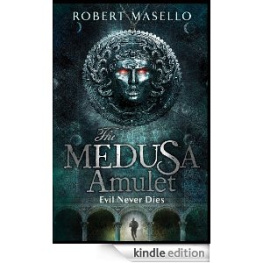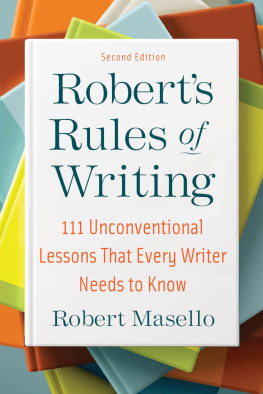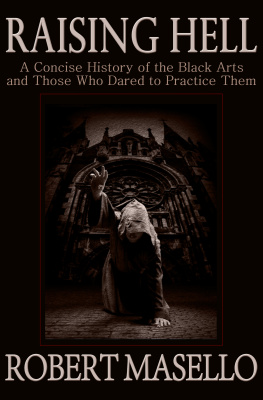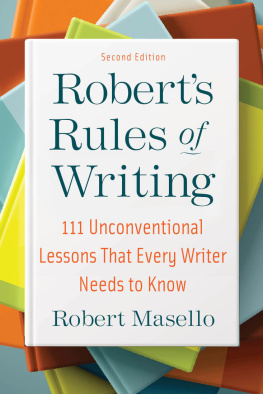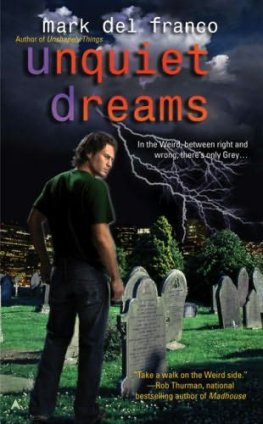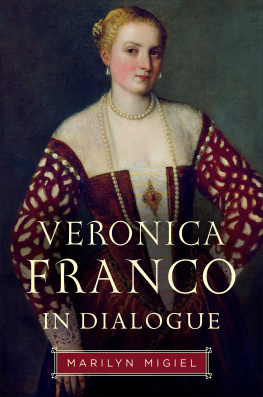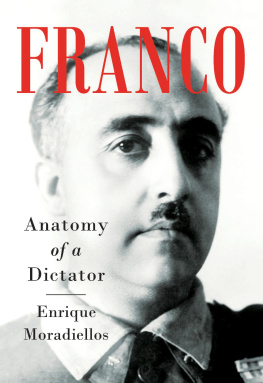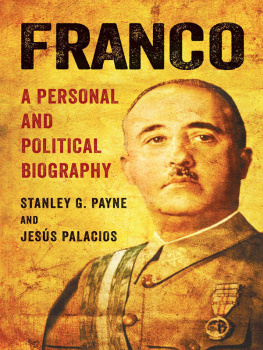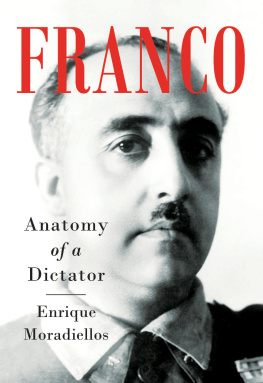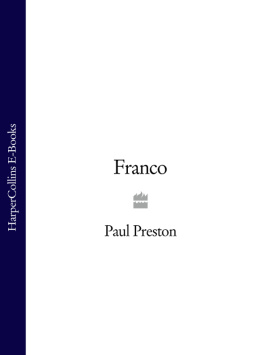Contents
About the Book
Florence, 1538: Artist Benvenuto Cellini creates the Medusa Amulet: a work of unimaginable power and menace. The amulet can grant immortality to any who stare into it on a moonlit night, but it soon falls into the wrong hands.
Chicago, the present day: Art historian David Francos beloved sister, Sarah, is dying of cancer. When a mysterious widow offers him one million dollars to find the legendary amulet, he seizes the chance to pay off Sarahs medical bills and offer her a chance of survival.
The result is a desperate race against time that will take him across centuries and continents, from American archives to Renaissance courts, from the ramparts of the French Revolution to the dark depths of the Nazi party.
And there are others who have heard of the amulets powers, and they will stop at nothing to find it
THE MEDUSA AMULET
Robert Masello is an award-winning journalist, television writer, and the author of many previous books. His most recent supernatural thriller, published in nine languages, was the critically acclaimed Blood and Ice. His other novels include Vigil (which appeared on the USA Today bestseller list) and its sequel, Bestiary. His articles and essays have appeared often in such publications as the Los Angeles Times, New York Magazine, People and Parade, and his non-fiction book, Roberts Rules of Writing, has become a staple in many college classrooms. Among his produced television credits are such popular shows as Charmed, Sliders, Early Edition, and Poltergeist: the Legacy. A longstanding member of the Writers Guild of America, he lives in Santa Monica, California.
ALSO BY ROBERT MASELLO
Blood and Ice
In memory of my parents,
Tom and Sonia
ROBERT MASELLO
The Medusa
Amulet
Prologue

[From La Chiave Alla Vita Eterna (The Key to Life Eternal) printed in Florence, Italy, c. 1534. Attributed to Benvenuto Cellini. Anonymous gift, donated to the Permanent Collection of the Newberry Library, 60 W. Walton Street, Chicago, Illinois.]
To venture into the Colosseum at night is not for the faint of heart, and in following the lead, and the lantern, of Dr. Strozzi, I wondered if I had not cast my fortune unwisely. Although the old man was learned, I could not help but see his hand shaking as we came near to the great and ancient stadium itself.
Long abandoned, and in much need of repair, it was surrounded by pens and stables and fenced yards, which had once held the lions and crocodiles, bulls and tigers, elephants and leopards, that had been imported from all corners of the Empire and then pitted against each other in the arena. Thousands of them, it has been said, were slaughtered in a single days entertainment.
Men, too, of course. As Dr. Strozzi carried the lantern past the barracks of the Ludus Magnus, where the gladiators had trained, I could still detect the scent of sweat and leather and iron.
But like all young men of talent and industry, I did not allow fear or superstition to bar my way. On my back, I carried the burlap sack containing the necessary ingredients for the unholy work that lay ahead. In preparation for that night, Dr. Strozzi, a man whose skills in necromancy were famous from Palermo to Madrid, wore the robes of a dead Franciscan friar, and I wore the clothes of a murderer, hanged at a crossroads on the outskirts of the city.
To call upon the dead, Dr. Strozzi had informed me, it is necessary to become simpatico in every way. We must take on the odor of decay. For that purpose, we had not bathed for a period of nine days and had eaten no salt, as that was a preservative. Our meat was dog, the companion of Hecate, goddess of the dark moon. Nor had we engaged in any carnal intercourse. As I said to Strozzi in answer to his many warnings on that matter, Who would have me in such fashion as this?
In further deference to the spirits that we hoped to summon that night, we entered the Colosseum through the Emperors Gate. The bronze clamps that had held the marble in place had long since been stolen, and the marble itself had been plundered for its quicklime. As an artisan, I mourned the loss of such skilled work. The world, as I have often remarked, is overrun with barbarians.
With rain coming soon, we did not hesitate once inside. Under the gaze of the ancient gods, whose broken statues stared down at us from every column, we descended into the hypogeumthe labyrinth of tunnels and ramps and stairs that had once been concealed by the dirt and sand of the arena floor. Now, the maze lay exposed, and at its very center, we found a holding cell where part of the roof still afforded some protection from the gathering storm. Rusted manacles hung from the walls, and a flogging post provided me a hook on which to hang the sack.
Moving always in a left-handed direction, as that is the direction of all things occult, the aged sorcerer made a circle of chalk in the dirt, marking it with the symbols of Earth, Air, Fire, and Water. This would keep the demons and spirits at bay. As he did so, I prepared the fire from the kindling in the bag. Once Dr. Strozzi was done, he directed me to feed the flames with the herbs we had also brought. Myrtle, sage, asafetida. The wood had been soaked in tar, and between that and the stench of the herbs, I thought my senses might give way at any moment. My eyes wept, my nostrils burned, and more than once sparks from the fire threatened to burn the filthy tunic I wore. I would not have mourned its loss.
But even as the doctor made his incantations, and raindrops began to splatter the stones around us, I lowered my head and made my own invocation. Despite his reputation, the doctor, I feared, would not succeed. His motives were impure. He sought out the dead only to ask them where great treasures might lie hidden in the earth, while I sought them out in order to fathom the depths of genius, and thereby procure my own immortality. And so it was that as the night wore on, and the doctors supplications yielded no result, my own did in the form of a pale figure, flickering like a wax taper, just beyond the limits of our circle.
Dr. Strozzi, upon seeing it himself, fainted dead away, but my resolve was only strengthened. This figure, with its long nose and pointed chin and sharp eyes, was the very spirit I had wished to summon. It was the shade of the greatest poet the world had ever known, a fellow Florentine by birth (though he had denied it by character), Dante Alighieri.
I honor you, I said.
And still you trouble me? Am I to be your dog?
I sought the right words to explain myself, but the shade simply turned away, its winding sheet trailing on the wet stones. I know what you seek, it said.
Armed with only the short sword I carried at my side, I stepped across the holy circle and followed. But the path soon became confusing, and I felt that we were descending farther into the earth, beneath the Colosseum itself, and into another region. Here, although there should have been no light at all, there was instead another sky, with clouds that looked like banks of glowing coals and a yellow moon the color of a rotting tooth. The shade led me on over ground that crackled like bread crust under my boots. In the wind, I could hear voices murmuring and lamenting, but I could see no one other than my silent guide. At the end of a promontory, he stopped and, pointing a lean finger toward a marshy hollow below, said, There. Take the water, if you can.

